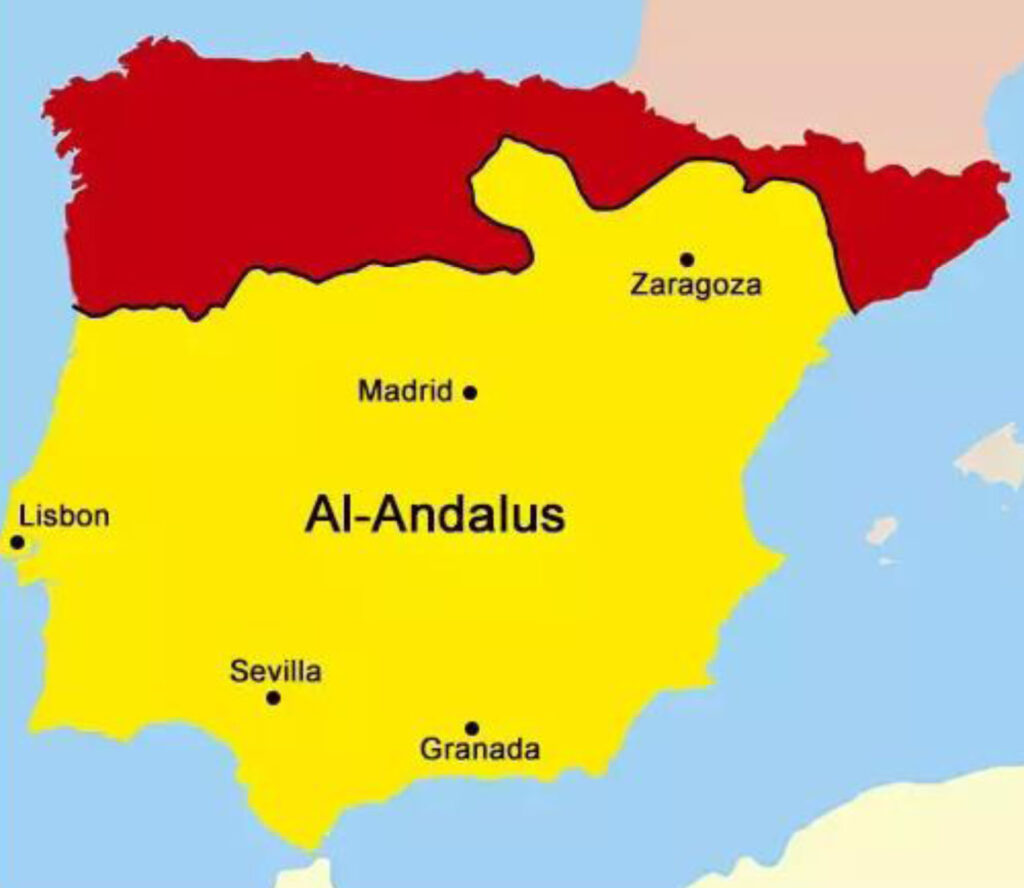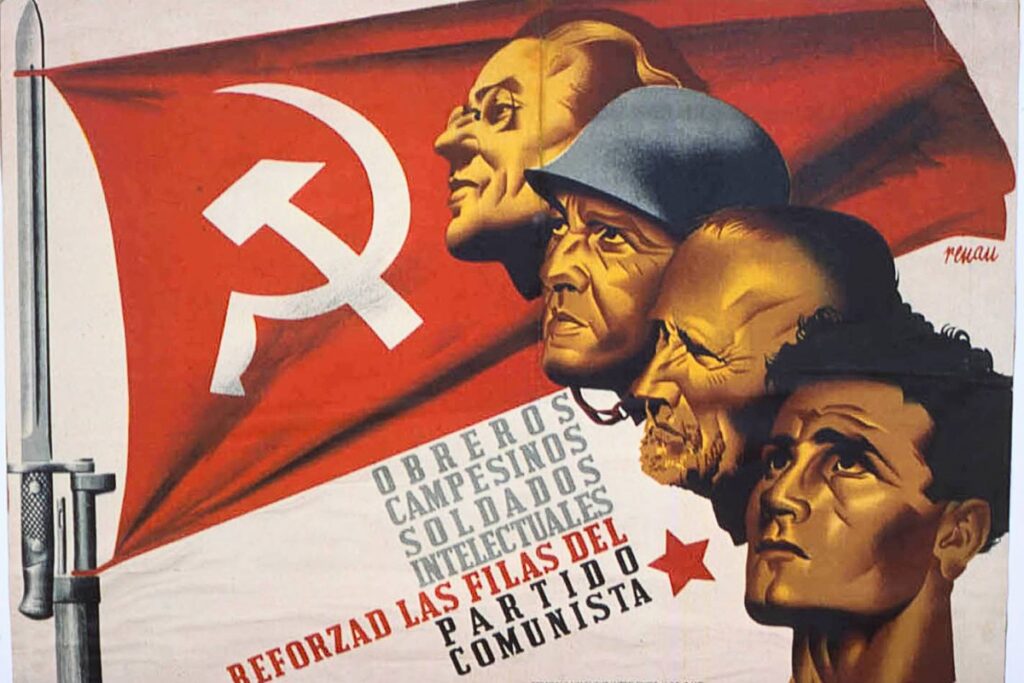Wars are breaking out all over, so far in Ukraine and Israel. Is Taiwan next?
The odd nature of these conflicts is that they are being waged within the same ethnic groups. Russians and Ukrainians are both Slavic. Israelis and Palestinians are both Semitic; and mainland Chinese and Taiwanese are both Han Chinese. There may be religious and cultural differences but they share the same roots. It isn’t often that ethnic groups fight among themselves but there are plenty of mundane reasons to spur on a fight – in the above instances it’s about land.
We are part of a greater ethnic group, Latins. But I wonder how many Italian Americans consider themselves Latins, a global cultural group that shares some common DNA. (The term Latin has been so debased of late that we have to define it here as ‘of European origin.’) Latins, like other groups, are certainly not immune to internecine warfare.

of Muslim occupation
Our commonality started with the Italianization of the Mediterranean under Rome. The real secret of the Roman Empire was centuries of transplanting Italians – legionary veterans and colonists – to Spain, France, Portugal, and the Mediterranean basin. Once settled they intermarried with natives converting those lands into Italic outposts. The succeeding generations spoke Latin and their modern languages were labeled “Romance” (i.e., Roman, nothing to do with love).
Thanks to a Catholic Church that was given the secular reins of the Empire by the failing Roman emperors, we Latins weren’t transformed by our conquerors like the victims of Islamic aggression. The Spanish managed to survive 700 years of Muslim occupation with Latin solidarity. Even the pagan Germanic barbarians converted to our faith. Until the Reformation, Europeans shared the same religion, mostly obeyed the same pope, and lived similar cultures.
One notable example was Germanic ruler Frederick II (1194-1250), who ruled southern Italy and Sicily adopting the Italian dialect and culture. Of course, there were exceptions, as when the Latin French took control of Sicily and the bloody revolt known as the Sicilian Vespers (1282) drove them out. (In contrast, the Norman French — ‘Norsemen’ — occupiers of Sicily are still revered by the islanders.) Another instance of abusive fellow Latins occurred during the Renaissance when warring northern Italian city-states invited the French onto the peninsula, and then wouldn’t leave. Soon, Spain joined in to rule southern Italy and Sicily. Out of these alternating Latin occupations came the Neapolitan saying, O Spagna, o Francia, basta che si mangia. (“Whether Spain or France, as long as you eat.”)

If we apply this simpatico “Latin” tolerance to the Americas, perhaps it explains why Latin America has been one of the model continents, relative to wars. Clearly, Europe, Asia, and Africa have rarely been peaceful. Could it be because the dominant languages of Latin America are the Romance Spanish and Portuguese; the dominant religion is Roman Catholic; and the extant culture is Latin (Iberian/Hispanic)? There have been border wars, mostly in the 19th Century, not today. Instead of external enemies, many Latin American nations are consumed by internal chaos whether from political strife or economic failings. Conveniently, inhabitants suffering from these maladies can scoot over the U.S. border these days – we are Latin America’s safety valve.
A last thought on war and the Latins: the Spanish Civil War (1936-1939). Often considered a war between democracy and fascism, it was rather a bloody struggle between Latin tradition and Marxist utopia. The so-called Republicans were so infiltrated by Soviet Communists that English volunteer George Orwell, later author of 1984 and Animal Farm, fled the Republicans in disgust. For Fascist Italy the struggle was to prevent Stalin from transforming a Latin nation into a Communist experiment. Republicans massacred clergy and sought to destroy traditional Catholic Spain. We will never know how a “republican” Spain would have turned out. And thankfully, neither Italy nor France went fully Communist despite Soviet attempts both before and after WW II. Latin Cuba did go that route in 1959 and still hasn’t recovered.
The lesson: Latins need to maintain traditional values and treat war like the plague. -JLM

Yes, the Spanish civil war as a war between Communism and Fascism. Why we formed the Lincoln Brigade to fight on the Marxist side is puzzling. Marxism an atheistic, socialistic, dictatorship, is 180 degrees from a democratic capitalist government. Our support for the Republicans was probably due to FDR being a communist sympathizer with some 50% of his staff being communist.
If you have ever seen the FBI subversive list from post WW II it listed all the volunteer Spanish Republican groups as enemies of the U.S. I believe that civil war is still considered by many deluded folks as having to do with defending democracy. That might have been true in the early months before Stalin got his claws into it. BTW, at war’s end, all the gold reserves of Spain ended up in Moscow.
Interesting observations, regarding kindred groups in mortal combat, and also very scary for the USA today…lest we forget our own history and the tragic civil war, still the bloodiest in our history…..and the post-reconstruction era. In many ways, from a broad sweep of history, we certainly are dealing with it today.
Totalitarian states whether of the right or left act the very same way and why Poland was gobbled up by Nazi Germany and Communist Russia, without an ounce of political correctness, all the justifications came after…
I don’t know if it is the water, or our DNA but its certainly frightening to see where we are heading….perhaps we should borrow from the Latin observation In vino veritas and spend more time making and drinking wine…….these days a lot saner…,
The last 2000 years of wars and religious fanaticism make you appreciate the Roman Peace of our ancestors and the old pagan worship – gods were interchanged and respected, never the cause of wars.